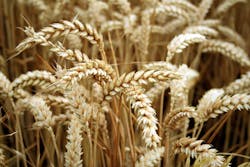Recent research showed that investments in increased irrigation and water-use efficiency could lower food prices for staple and nutrient-dense crops by 2030. In “Investments in Irrigation for Global Food Security,” Claudia Ringler, deputy director of the Environment and Production Technology Division of the International Food Policy Research Institute, found that failure to make such investments could result in water and resulting food shortages.
According to the research, the combination of accelerated irrigation development and increased investments in water-use efficiency would reduce the prices of rice, wheat, and corn by 7.4%, 3.6% and 1.5%, respectively, by 2030.
“Although some of these investments might seem expensive, they would provide huge benefits to communities in the developing world and have the potential to help millions leave poverty and hunger behind,” said Ringler.
To read the full report, visit http://ebrary.ifpri.org/cdm/ref/collection/p15738coll2/id/131045. Read more about how maintaining plant life is critical to the planet.
Source: International Food Policy Research Institute


